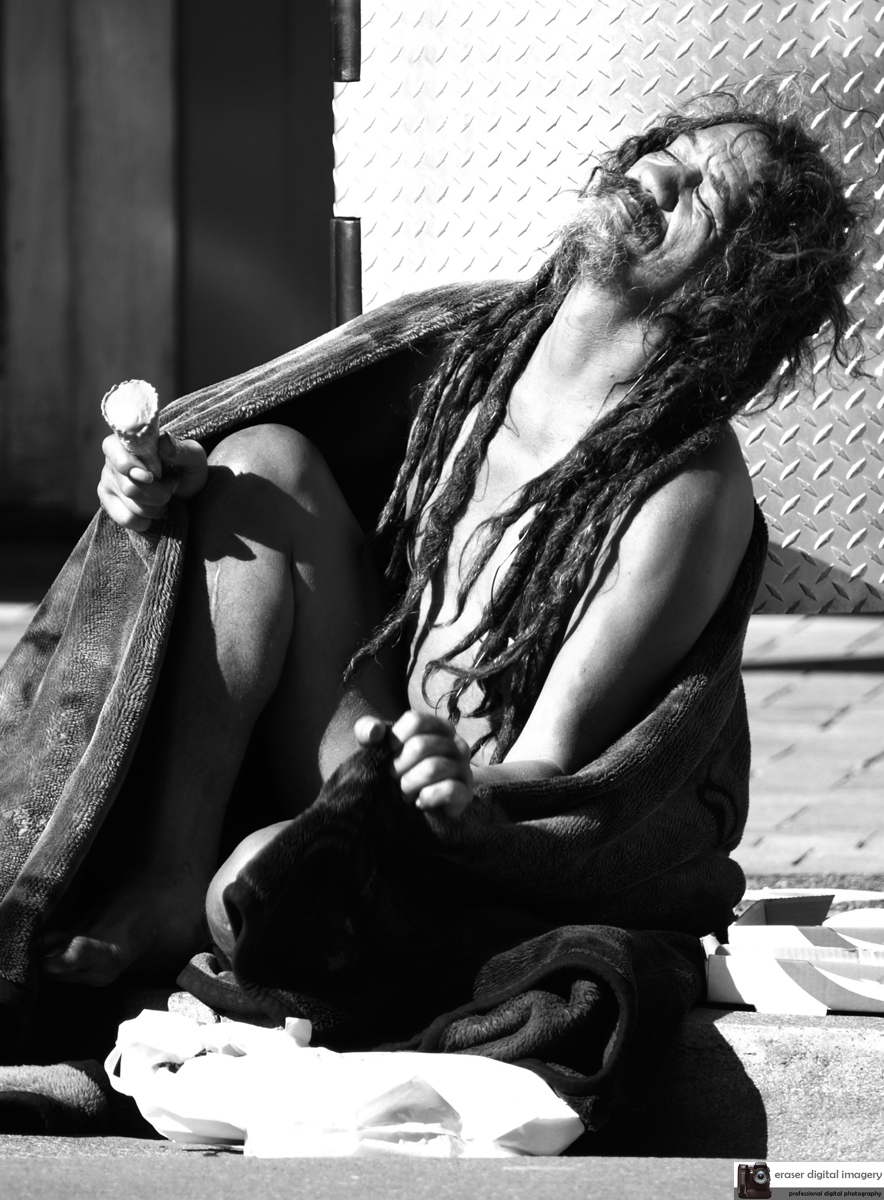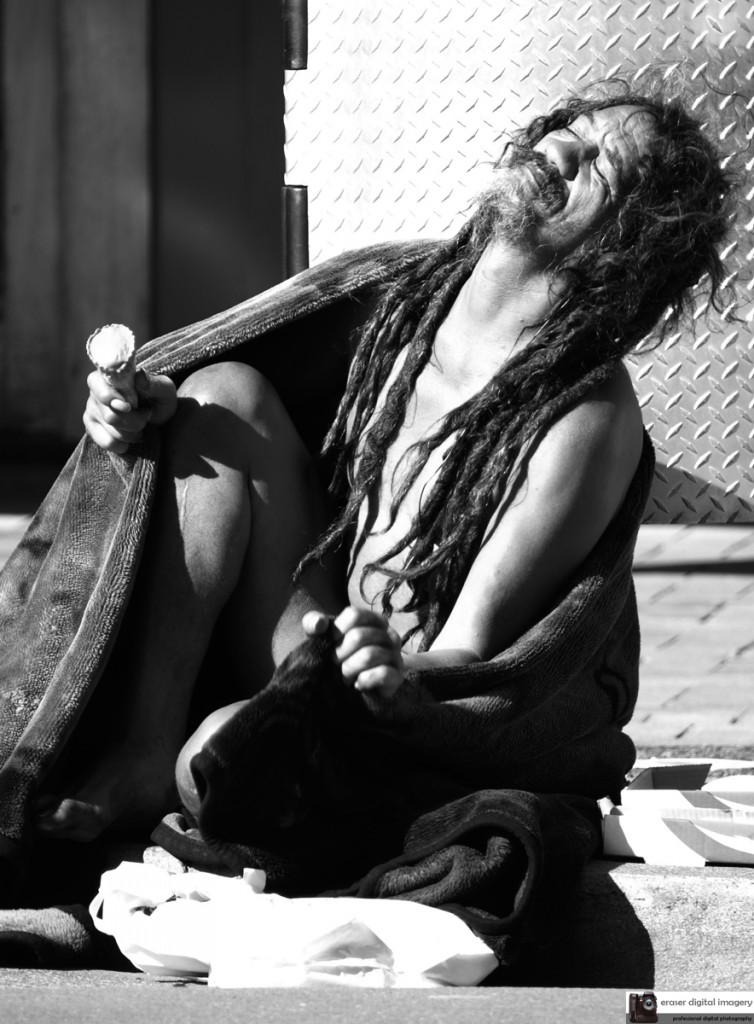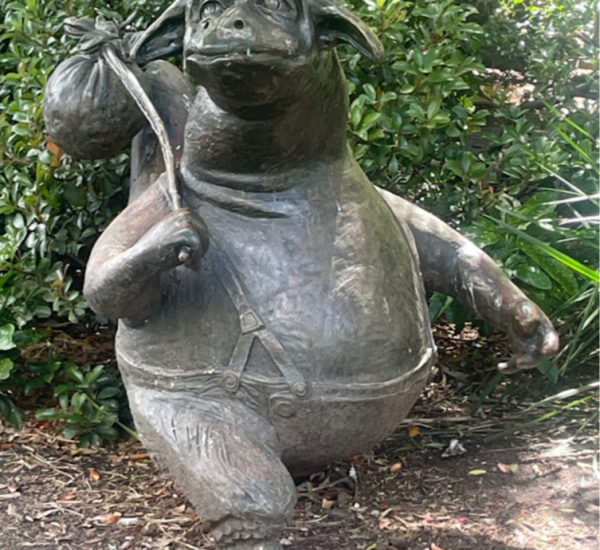It’s Sunday evening and I just saw through a friend’s Facebook a link indicating that Wellington icon Blanket Man (Ben Hana) died in hospital.
http://www.nzherald.co.nz/nz/news/article.cfm?c_id=1&objectid=10778915
Since this is a blog devoted to the city of Wellington and its sense of place I can’t imagine that we could not mention his death. Â He was a permanent fixture of the streets of Wellington and was a bit of the spirit that, for me at least (and clearly others), made this city the interesting place it is to be.
I do really love the fact that the comments on the Stuff article are, at the point of writing, 100% in solace. Â http://www.stuff.co.nz/national/6260217/Wellington-Blanket-Man-Ben-Hana-dies While this seems like it would be a given reaction, I have read US based news articles about the deaths of similar characters and the comments are filled with vitriol and hatred. Â The response of readers only cements his place in Wellington and the qualities of this city that I like.
Of course, Ben Hana’s Wellington life was not without controversy. Â His public nudeness and pot smoking caused many run ins with the local constabulary, and shopkeepers (and other city dwellers.) Â I have to admit that I didn’t know much about Blanket Man’s philosophical thoughts, and it turns out he had concerns about the land that we live in and on, and some definite thoughts about we should change our ways. Â You can listen to some of his thoughts here http://video.google.com/videoplay?docid=-6491252565278124054 (part 1 of a 4 part documentary video) although I have to admit, despite the interesting and amusing content, I’m not sure I understand his philosophy any better after watching…
So farewell Blanket Man, someone who has impacted all of our experience of Wellington in some way. Â Our city will definitely be different without you. Â Rest in peace.






So: Ben Hana is no more.
As an icon of Wellington, you were always a wonder – slightly mystifying or horrifying to tourists, somewhat loved or at least warmly tolerated by Wellingtonians, as a symbol of homelessness, you really showed it to the rest of us how few personal possessions a man can really live with.
Three bedroom home in the suburbs? Totally unnecessary.
Trophy wife and a 25 year mortgage? Couldn’t think of anything I’d rather have less.
A roof over your head? Much over-rated.
A shirt on your back? Superfluous, really, if you worship the sun.
Shoes and trousers? Can’t see the point really.
Hat for taking of donations? Not asking, not taking.
Blanket? Useful for keeping the snow off.
Bag of weed and a walkman? All you need, bro…
Regarded, it seems, by most Wellingtonians as a loyal mascot, with much the same affection as you might have for a large Saint Bernard romping in the streets, Brother, as he liked to be known, didn’t play by the rules that the rest of us do. Much as I like to sunbathe, he took it to a public participation extreme. I offered him money once – he looked at me like I was mad. Ticking to the rhythm of his internal own audio track, he used to talk coherently and laugh infectiously, but of late had been looking more and more bloodshot, and sounding more like a drain. RIP Brother…
I think it great I live in a town where we can celebrate an individual’s choice to lead a life less normal. Nice thoughts Maximus
Interesting that people of Wellington are offering to help out with his funeral – a coffin has been donated by Tender Rest, and Gareth Morgan has offered to pay for the funeral. I imagine that others, like myself, would be happy to chip in with a donation also.
But, also interesting, for a man who lived so incredibly lightly on the earth, leaving barely a physical trace and no belongings, and not being someone to vandalise or destroy public property, is that people have graffitied the wall behind his favourite sitting place, with messages of love and support. Are we showing him more friendship in death than we did in life?
Rosemary McLeod’s column on Ben, from
http://www.stuff.co.nz/dominion-post/comment/columnists/rosemary-mcleod/6278273/Blanket-mans-slow-suicide
OPINION: So Blanket Man is dead. Now for the commemorative sculpture from Weta Workshop – I see the call for a sculpture has begun already – and the funeral attended by local dignitaries and those who used to feed him booze and junk food in Courtenay Place. They meant well, but they didn’t do him any good. He wouldn’t let them.
Blanket Man did a slow suicide on Wellington’s streets, dressed only in a loincloth and blanket, for years, and for this he became the city’s mascot. Is it too late to make dangly effigies of him to hang from rear vision mirrors?
Am I cynical? Yes. The sight of Ben Hana, bedraggled and slowly dying, didn’t inspire me. I didn’t think, as one dignitary has remarked, that “he did it his way”. I wondered instead about the world I live in, where a self-destructive scarecrow of a man can become an antihero, someone to mentally pat on the head for luck as you pass by, and even – this is where we were collectively quite mad – a tourist attraction, the local pet Maori.
I didn’t have any warm fuzzy feelings about the spectacle he presented. I felt angry, thinking about the marginalised people, all life’s failures around us, who want so much and somehow can achieve so little, and how too many of them are also Maori. Don’t throw pity into the equation. Pity, a soppy variation on complacency, is the last thing anybody wants to be on the receiving end of. No wonder he shrugged it off. Anger is what the downtrodden need, whatever gives them the energy to grasp hold of the only life they’ll ever get, and make something positive of it that may actually bring some joy. This they won’t get out of booze and marijuana, the addictions that were the focus of Blanket Man’s life, and which killed him at 54.
There is something weird, too, when ordinary people’s response to an appalling crime is to tell TV reporters about their concern – not for the victim, but for the perpetrator.
The sexual violation and beating of a five-year-old child might have shamed the nation, but there they were, feeling good because they were not going to judge the accused, even if it turned out that he was guilty.
“We mustn’t judge” has become the national mantra. We actually feel righteous about giving up on any belief in right and wrong, so we can simply feel indulgent about a public slow death from addiction and malnutrition, just as we draw back complacently from condemning a vile crime.
We are, quite simply, morally lazy. It’s too much effort to set our minds to the task of upholding what’s good, and condemning what’s not: we’ve fallen into the trap of believing that an explanation for abhorrent acts is in itself an absolution.
Dompost editorial on Ben:
http://www.stuff.co.nz/dominion-post/comment/editorials/6265582/Editorial-A-tormented-life-far-from-romantic
OPINION: There is nothing to celebrate about the way Ben Hana, known as Blanket Man, chose to spend the last years of his sad and tormented life. He was not, as some regarded him, a happy-go-lucky vagabond cheerfully thumbing his nose at the establishment and living without a care on the streets of Wellington. Rather, he was a broken man, mentally unwell, haunted by personal demons, chronically malnourished and with a serious drug and alcohol problem that caused him to waste away before the eyes of those who genuinely tried to help him.
Mr Hana’s death should be a cause for reflection for those who romanticised his chosen lifestyle. The near-glorification of him by some as a symbol of liberty and non-conformity, a “Wellington icon” or, even more grotesquely, a tourist attraction to be pointed out and photographed like a circus freak, is said to have contributed to his refusal to accept the help he was offered and so desperately needed. According to Downtown Community Ministry director Stephanie McIntyre, Mr Hana came to believe that his Blanket Man persona gave him a public identity that was more important to him than his health and wellbeing. However, her claim that the media should bear much of the blame for his supposed cult status is unfair.
The name “Blanket Man” was not bestowed on him by the media, and most of the coverage of his life, certainly in this newspaper, was far from celebratory, relating mainly to his many appearances in court and complaints about his behaviour. The truth is that most regarded Mr Hana as an unsavoury nuisance, if not a menace. For every anecdote about him giving a cheery wave to passers-by, there are scores about him exposing himself, committing indecent acts in public view, shouting foul-mouthed abuse at passers-by and smoking cannabis and urinating in shop doorways. He was regularly in court on drug and offensive behaviour charges, and was jailed on several occasions. His elevation to the status of cult anti-hero by some undermined the efforts of those who work with the homeless in very trying circumstances. As Ms McIntyre noted yesterday, Mr Hana’s life was far from glamorous or desirable. It was hard, dirty, cold and dangerous. It is a safe bet that none of those who admired the way he lived would have swapped places with him for a second.
Mr Hana was a sad and lonely man who was once happily married with children and had a steady job before his life took the turn that saw him descend to a pitiful existence on the streets. Only he will ever truly know how he ended up there, though his guilt at killing a close friend in a drink-drive crash appears to have been a major factor. If there is a lesson in his demise, it is that none of us can ever take what we have for granted. If his death poses a question, it is how we as a society can better help those who are in such despair that they prefer a life in the open to the warmth and comfort of a home.
If there is anything positive in the last chapter of Ben Hana’s life, it is that he at least died with some dignity in a hospital bed, tended by caring health professionals, rather than alone on a cold and empty street.
Letter to the editor
OPINION: Tuesday’s editorial on Ben Hana, aka Blanket Man, was patronising in the extreme. You assert that Mr Hana was mentally unwell, the implication being that, if he weren’t, he would have chosen a “normal” lifestyle. Unfortunately, normality is nothing more than a common behaviour observable in the majority of a population. Just because something is “normal” doesn’t make it right.
It’s no coincidence that those who perpetuate myths of normality often happen to occupy privileged positions within the social frameworks that they seek to reinforce. Those, such as Mr Hana, who behave outside the confines of the constructed norms, threaten the advantages that accrue to those who occupy a privileged social position. These people are quickly dismissed as either “sick” or “criminal”.
To admit that a rational person could freely choose not to live in a house, not wear clothing, and not covet material goods would present the possibility that those of us who do choose these things mightn’t have made the right choices; that there is at least one other equally valid alternative. Your editorial was indeed very quick to dismiss Mr Hana as both “sick” and “criminal”.
SCOTT TRAINOR
Brooklyn
Letter to the Editor
OPINION: It’s an insight to the character of public figures to read their comments on the passing of Ben “Blanket Man” Hana. In particular, those who choose to celebrate his “choice” to live life his way betray shallowness of thought. At the end of the day, any “choice” he made was made before drugs and alcohol permanently impaired his abilities. Though public office doesn’t give people any monopoly on common sense, because they hold office they do need to choose their sentiments clearly because they speak for all Wellingtonians, not just themselves. I, of course, refer to Wellington Mayor Celia Wade-Brown and her thoughts (In memoriam, Jan 17).
KAREN WATSON
Highbury
And although I can’t find the Mayor’s thoughts in memoriam (thanks Stuff: deleted already!), here is a really grumpy piece from Sean Plunkett:
http://www.stuff.co.nz/dominion-post/comment/columnists/sean-plunket/6293227/Blanket-Man-a-symbol-of-societys-failure-not-rugged-individualism
Blanket Man a symbol of society’s failure, not rugged individualism
OPINION: I was surprised at the 100-plus turnout for Blanket Man Ben Hana’s funeral this week. Wasn’t it moving to see friends and whanau paying their respects to a man described as an “international icon” and a “symbol of individual freedom”?
I don’t know if Gareth Morgan laid on drinks and food for Ben’s sendoff. If he did, I’m sure the previously invisible supporters of this vagrant were all too willing to raise a glass to a man who lived much of his life deliberately disconnected from them and the rest of the mainstream world. In an orgy of post-mortem self-indulgence, other “friends” of Blanket Man have defaced and vandalised a commercial premises in Courtenay Place, displaying much more interest and concern for him after his death than they ever displayed during his life.
The story of Ben Hana’s demise is not one of noble individualism and rebellion against the system, but a tale of tragedy, addiction and decline to a sad, pathetic and lonely death. Like the undetected death of an elderly pensioner in a Wellington City Council flat last year.
I’m sorry, but I didn’t see Ben as a quaint oddity, a tourist attraction or any sort of icon. His behaviour was obnoxious and aggressive, his appearance repulsive and his odour offensive. His presence on the streets of our city for so many years seemed to be more a symbol of our failure to help him than his determination to live in some alternative universe.
Many good people did help him as much as he would allow – the lawyers who represented him in his numerous brushes with the law, the charity workers who did their best to care for him, and the hospital staff who despite his rebuffs did their best to give him a modicum of assistance. But in truth, most of us laughed at Ben and exploited him as an oddity, whether by engaging him in drunken conversation on a Friday night or dressing up in Blanket Man costumes for the Sevens.
As has been noted, our willingness to recast Ben Hana as something more than a sad, lonely, psychologically disturbed vagrant may have in fact contributed to his death, as his alcohol- and drug-addled mind grew to believe in the myth of Blanket Man that we created to candy- coat such an obvious symbol of individual and societal failure.
I recently wrote on the demise of a genuine Wellington icon, Carmen, but where she was remembered for her kindness and concern for others while still living a life outside the mainstream, Blanket Man should not be credited with those same positive attributes. He was in the end a burden to society rather than a beacon; more a weed springing from our pavements than a flower. RIP Ben Hana, but I do hope we do not see your like again.